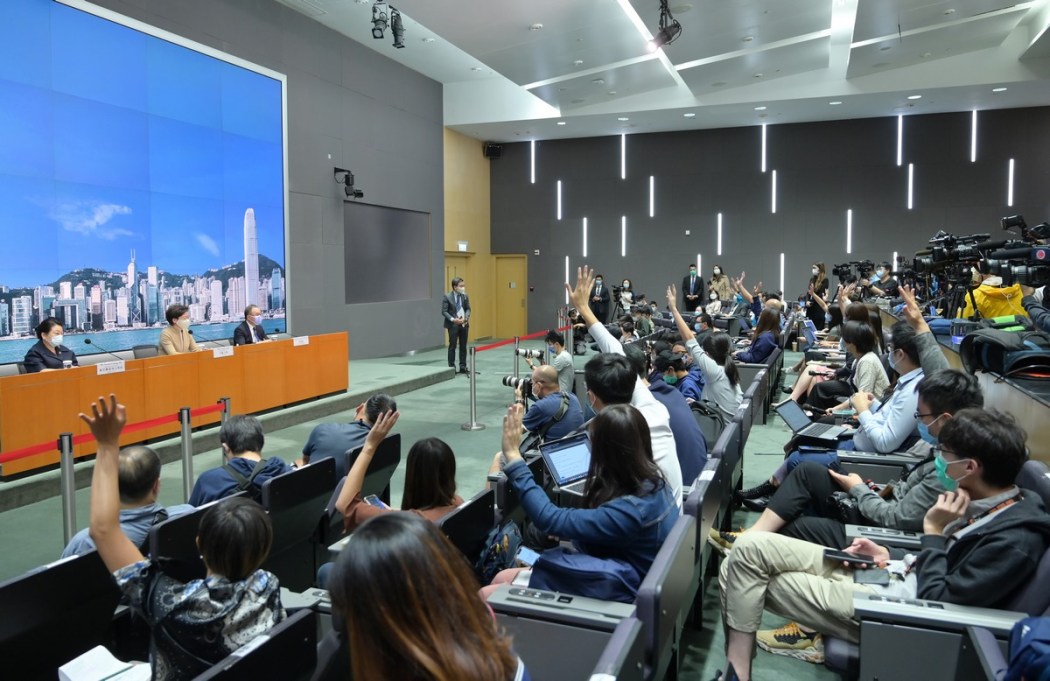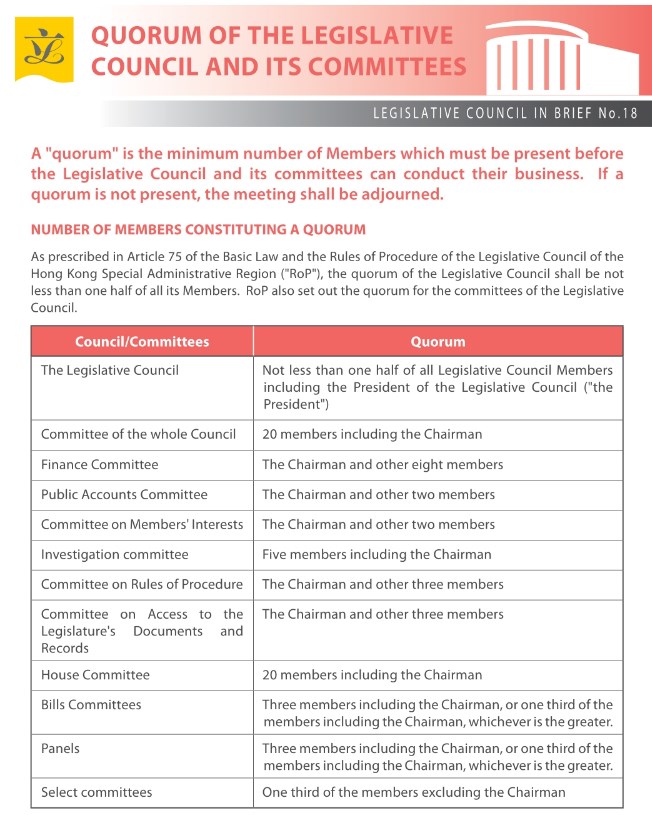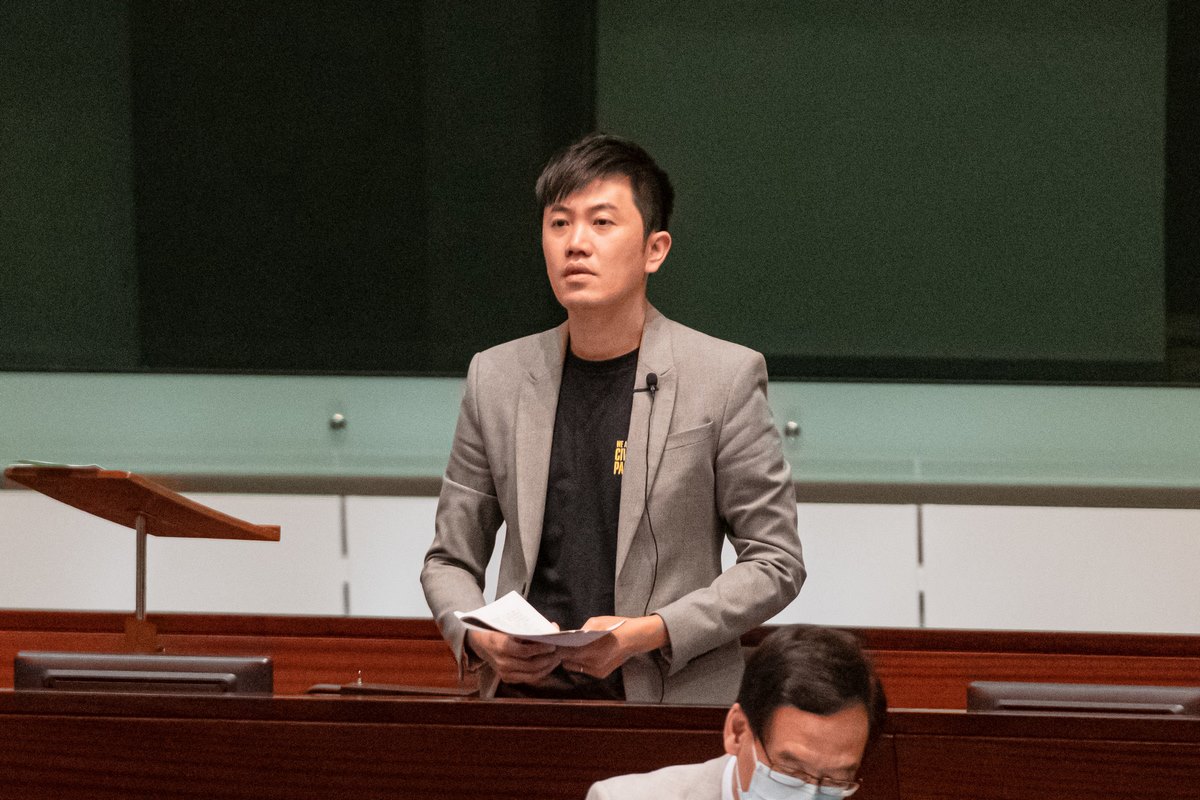Hong Kong’s parliamentary opposition has just ground to a total halt, as a result of the government’s decision to disqualify four members of the Legislative Council from pro-democracy political parties. The four include Alvin Yeung, Kwok Ka-ki and Dennis Kwok from the pro-democracy Civic Party, as well as Kenneth Leung from the accountancy functional constituency.
Following the decision, 15 other pro-democracy lawmakers decided to resign collectively in protest over the disqualifications. It effectively leaves Hong Kong’s legislature without an organised opposition for the first time since the Handover, excluding the year that the Provisional Legislative Council was in operation from 1997 to 1998. HKFP examines how – and why – this happened.

What just happened?
The National People’s Congress Standing Committee made a decision outlining the circumstances under which a Legislative Council member would be considered to have failed to uphold the Basic Law or pledge allegiance to the Hong Kong Special Administrative Region of the People’s Republic of China. The circumstances include:
- when a lawmaker advocates or supports Hong Kong independence
- when a lawmaker refuses to recognise China’s sovereignty or exercise of sovereignty over Hong Kong
- or when a lawmaker seeks intervention by foreign forces in Hong Kong affairs.
The NPCSC decision is applicable to lawmakers who were seeking another term of office in the postponed 2020 Legislative Council election, meaning the Hong Kong government has now disqualified four lawmakers who were deemed to be ineligible to run as election candidates during the nomination period in July.
Did Chief Exec. Carrie Lam ask Beijing to disqualify the lawmakers? Why were only four ousted?
When speaking to reporters following the decision, Chief Executive Carrie Lam said that the Hong Kong government had requested Beijing’s intervention into the matter, as the local government was not in a position to make a decision on its own.

The NPCSC’s decision does not name any individual lawmakers, but from the government’s perspective, the singling out of the four is the natural consequence of Wednesday’s ruling, taken together with the earlier decision made by returning officers to invalidate the four lawmakers’ candidacy for re-election.
Has something like this ever happened before?
Shortly after the 2016 Legislative Council election, Baggio Leung and Yau Wai-ching, two newly-elected opposition lawmakers who identified with the more radical localist faction, deliberately misread the mandatory oath of office during their first parliamentary session as a form of protest. Because the language they used during their protest was deemed to be insulting to China, the Hong Kong government sought the intervention of the local courts to disqualify the pair from their positions as lawmakers. At the time, an informal precedent had been set that lawmakers who protested during the oath of office would re-take the oath at a subsequent parliamentary session.

In November 2016, the NPCSC handed down an interpretation of Article 104 of the Basic Law, stating that lawmakers who misread the oath, or who read the oath in an insincere manner, would be disqualified from office, and no arrangement would be made for re-taking it. The mini-constitution empowers Beijing to intervene to clarify constitutional matters.
As a result of the binding interpretation, which was made before the Hong Kong judiciary had reached a decision on the matter, the local court disqualified Leung and Yau. Further legal action by the Hong Kong government followed, and four more opposition lawmakers were disqualified in July 2017.
The difference this time is that the courts of Hong Kong are not involved in the disqualifications at all; the decisions have been made solely by the executive and legislative authorities in Hong Kong and Beijing.
Was this a response to filibustering?
Lam denied this is the case, saying that lawmakers would not be disqualified for using legitimate filibustering tactics, although she added that “of course we would not like to see this sort of tactics being deployed very extensively to the extent of totally disrupting the normal functioning of the Legislative Council.”

Earlier this year, the Hong Kong and Macau Affairs Office in Beijing criticised Dennis Kwok by name for using such tactics to delay the election of a chairperson in LegCo’s House Committee. Whether this is an indication that filibustering is deemed to be an act endangering national security, and therefore grounds for disqualification, is unclear, although if this were the case, one may expect that more than four lawmakers would have been disqualified outright today.
Will there still be enough lawmakers in the legislature for it to function?
According to the quorum rules, yes.

The main chamber simply requires “half” of the members to be present, whilst committees need up to 20 members to function.
Can this be challenged in court?
The local judiciary has previously grappled with the issue of whether NPCSC decisions can be overturned or otherwise deemed invalid by the courts of Hong Kong. On the most recent occasion that the question was considered – when the court examined in 2018 the arrangement of mainland laws being effective in part of the West Kowloon high-speed rail station – the court reiterated that it had no power to determine whether a NPCSC decision is invalid under Hong Kong laws. Given this precedent, it is exceptionally unlikely that any legal challenge to this week’s decision would succeed.
Does this mean there are no more opposition lawmakers, at least until the 2021 election?
Two lawmakers remain who do not identify as pro-establishment. Dr Pierre Chan represents the medical functional constituency and has no political affiliation, although he has voted in line with the pan-democrats during his time in LegCo. Dr Chan made a statement on his blog, saying that while he was extremely saddened and disappointed by the NPCSC decision, he would remain at his posts both at LegCo and at his hospital during the Covid-19 pandemic.
Dr Cheng Chung-tai of the New Territories West constituency is chairman of Civic Passion, a political party that is loosely identified as localist, though in practice the group’s members clash regularly with other localists over ideology and strategy.

Dr Cheng told reporters that he did not feel that a mass resignation would pose any direct threat to the Chinese political regime, and in terms of making a political statement, the pan-democrats had missed the most opportune time. Therefore, Dr Chung said he would remain at LegCo.
Can this decision apply to other lawmakers or future election candidates?
The text of the decision specifically stated that its provisions are applicable to any future LegCo election candidate or sitting LegCo member.

Now that there’s been a mass resignation from LegCo, what will the legislature look like without opposition?
The possibility of more legislation relating to integration with China is always there, including the infamous local national security legislation which, despite being overshadowed by the national security law passed in June, is still required by Article 23 of the Basic Law.
Additionally, funding authorisation for the government’s massive HK$624 billion land reclamation project near Lantau island is being sought incrementally, and is likely to occupy much time and discussion in the LegCo Finance Committee in the months and years to come.
Support HKFP | Policies & Ethics | Error/typo? | Contact Us | Newsletter | Transparency & Annual Report | Apps
Help safeguard press freedom & keep HKFP free for all readers by supporting our team
























